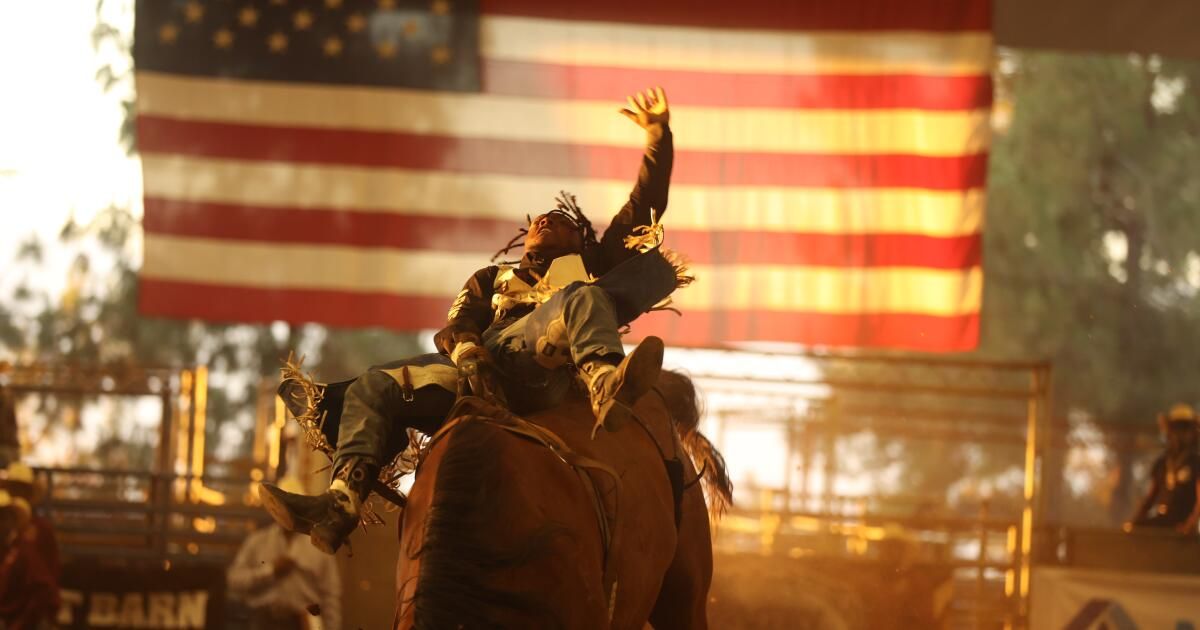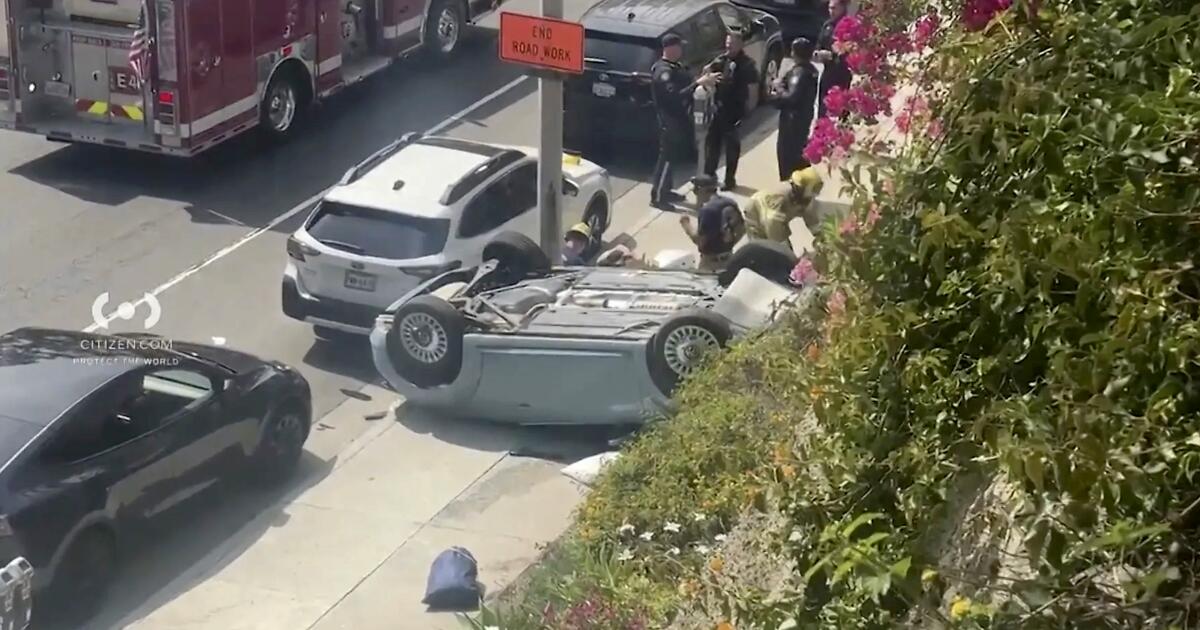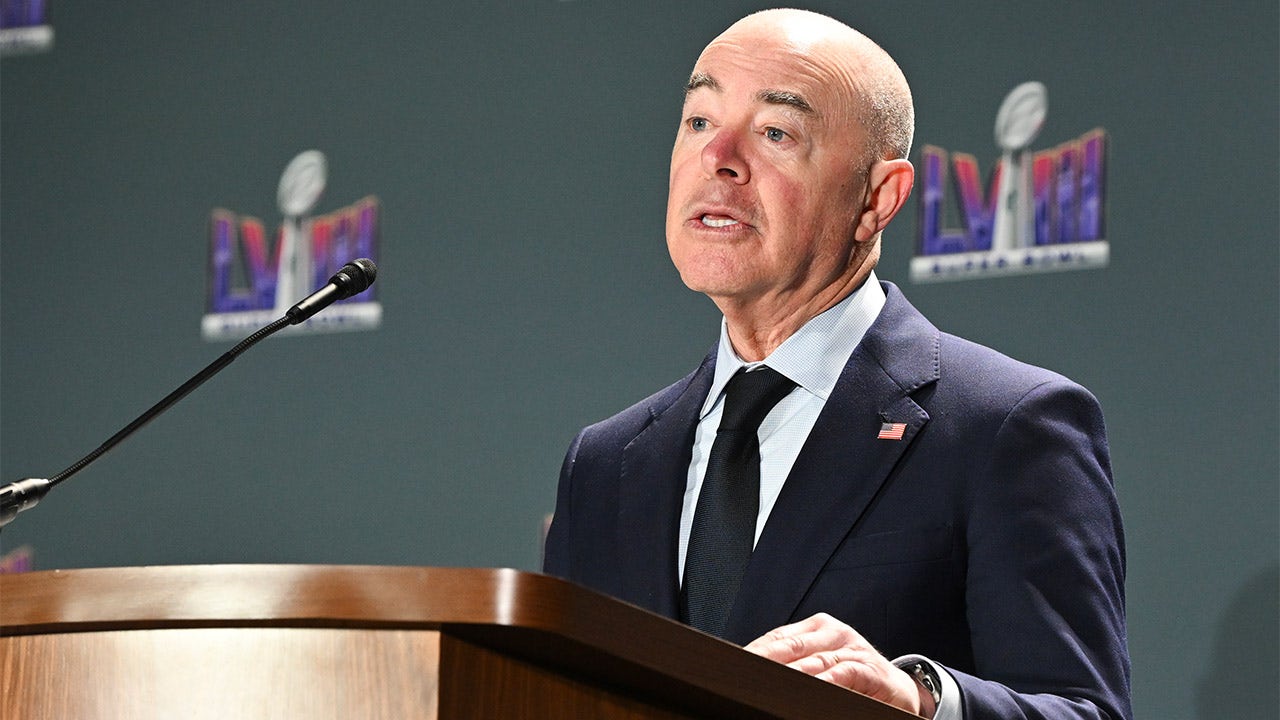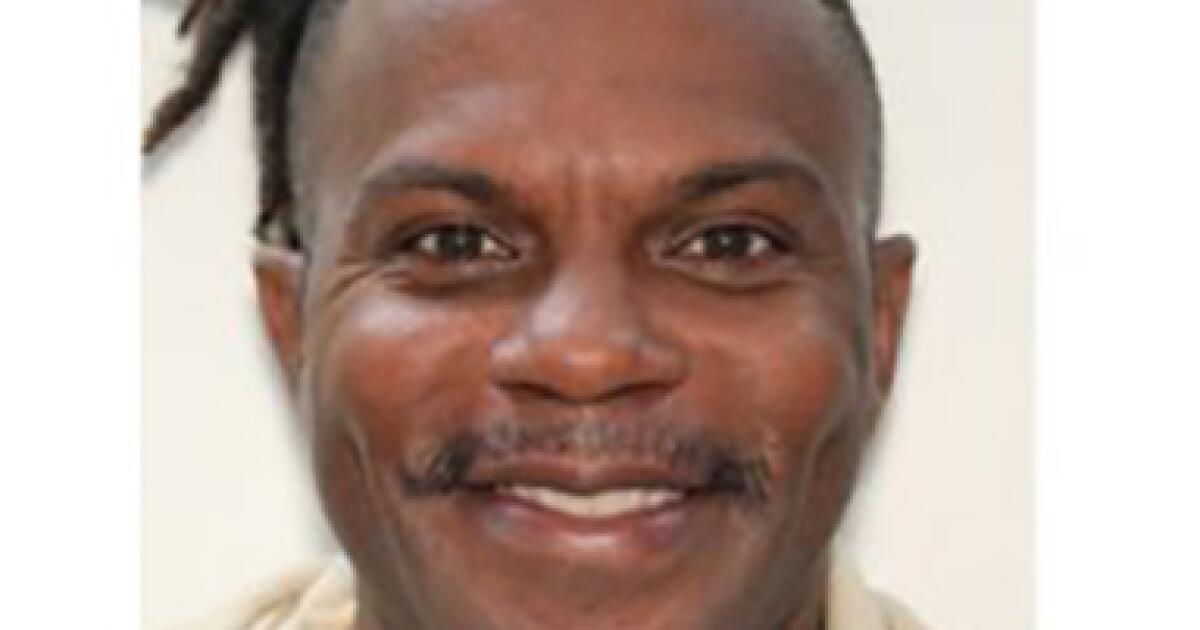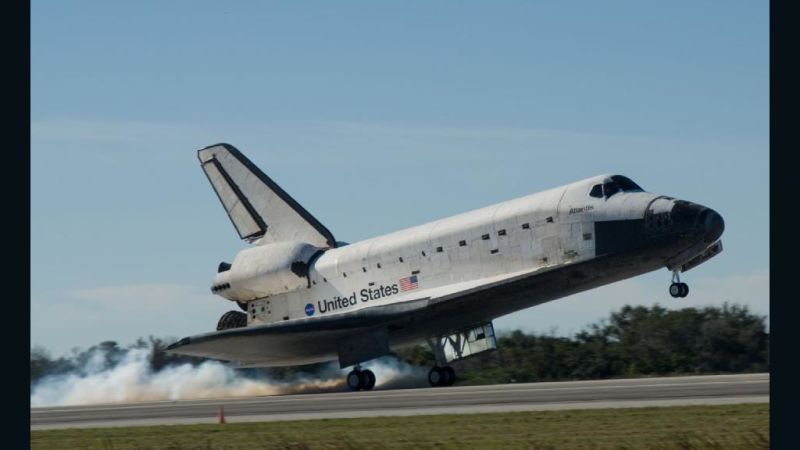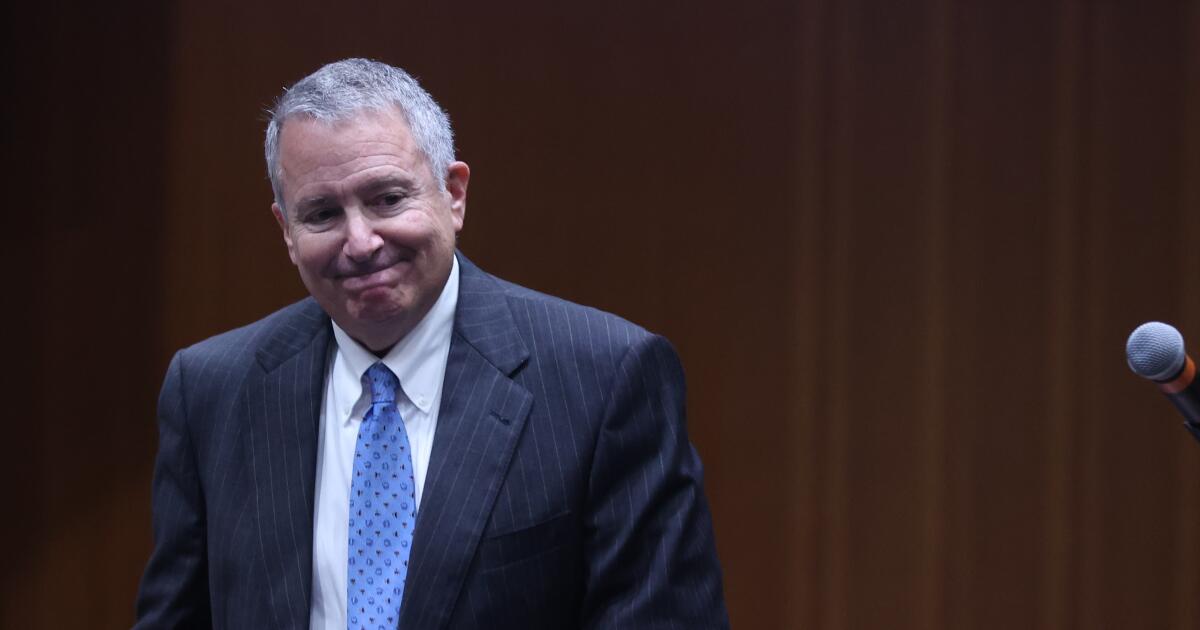Being from Kentucky and most of my dad's family being from Houston, I have a strong affinity for black cowboy culture. It's ingrained in my family roots.
The Bill Pickett Invitational Rodeo showcases great men and women from across this great country coming together as Americans to celebrate Black rodeo from Oakland to Los Angeles to Fort Worth.
Harold Williams, 12, before his cow-roping performance during the Bill Pickett Invitational Rodeo on July 21, 2024, in the City of Industry.
(Michael Blackshire/Los Angeles Times)
I met a boy named Harold Williams, age 12, who instantly caught my attention because of how young he was when he first got on a horse. “I was 4 months old,” Harold said in a southern drawl. Harold, from Prairie View, Texas, home to a historically black college of the same name that my sister currently attends, brings back memories of going to that small town where everyone gets along. Harold is a child prodigy when it comes to being a horseman and cowboy, riding astride a cow and roping the cow. A good old Texas boy with guts.
In March, Texas native Beyoncé released her first country album, “Cowboy Carter,” which put black cowboy culture into the mainstream more than ever before. This has led to a larger fan base for black American Western culture. Women attending the rodeo wore bright cowgirl hats in homage to Beyoncé.
1
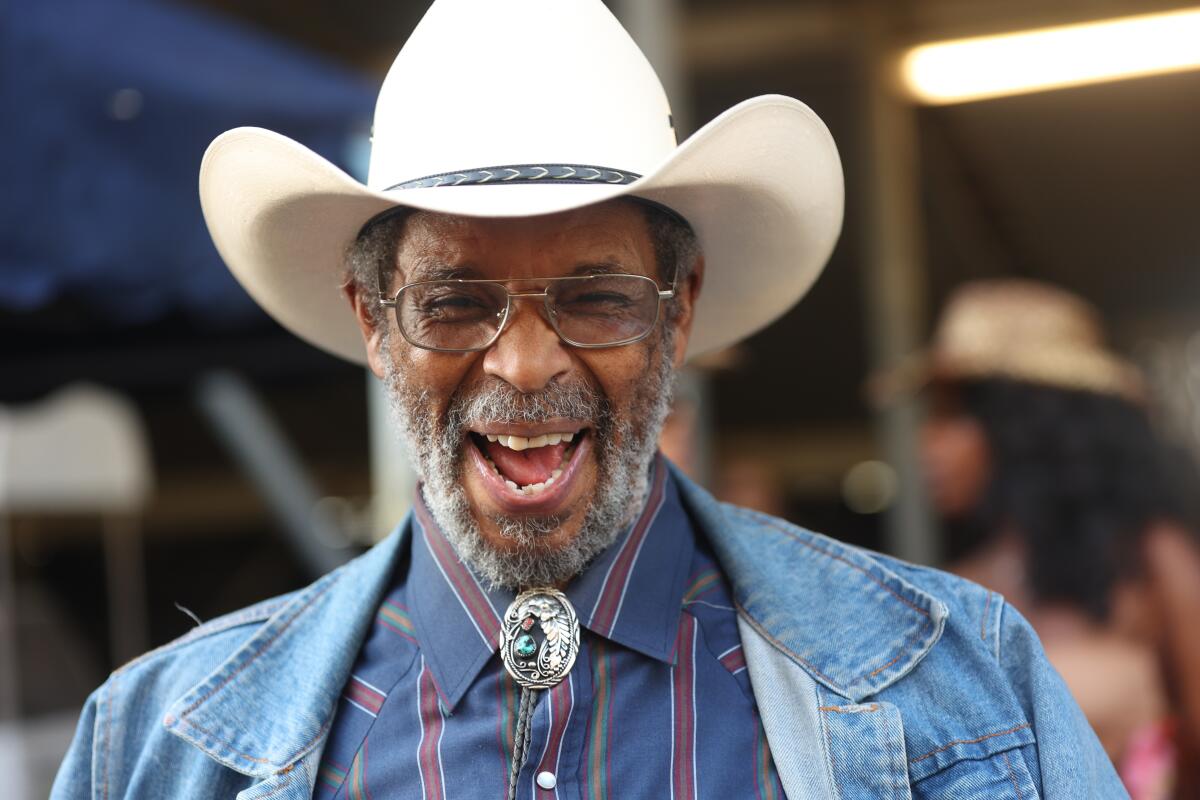
2
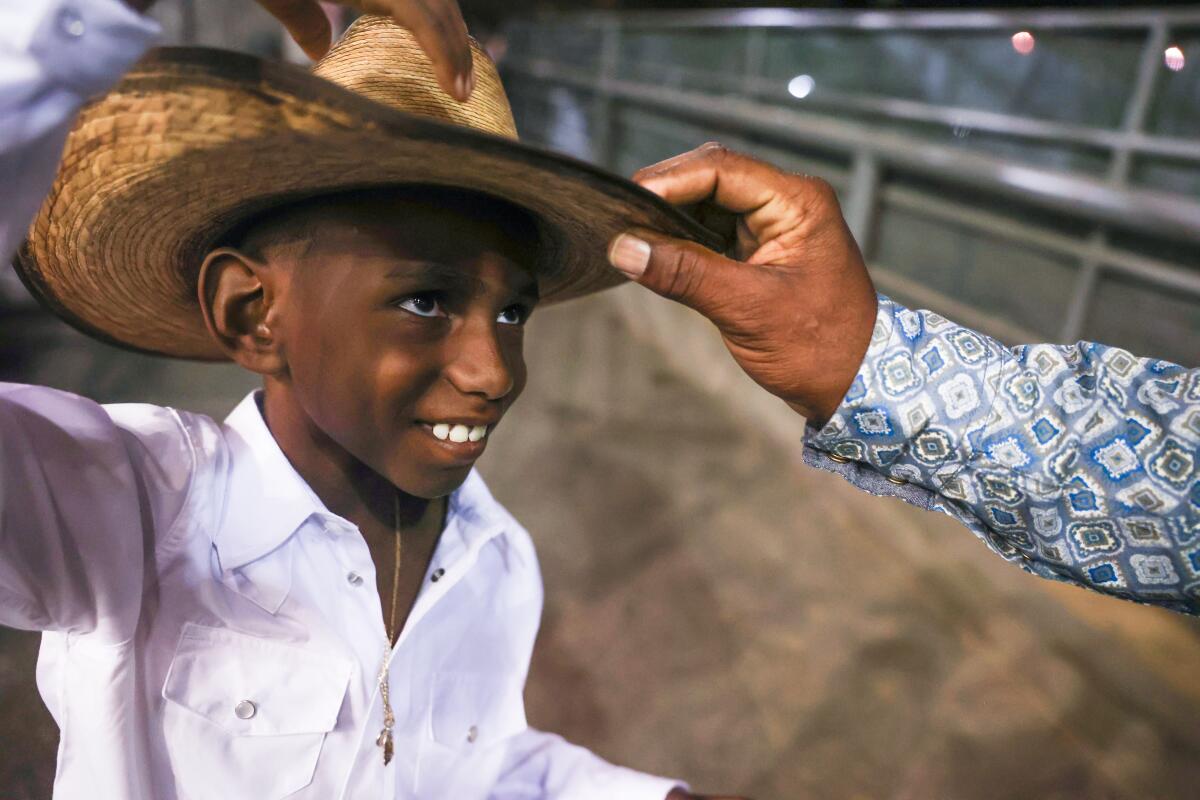
3
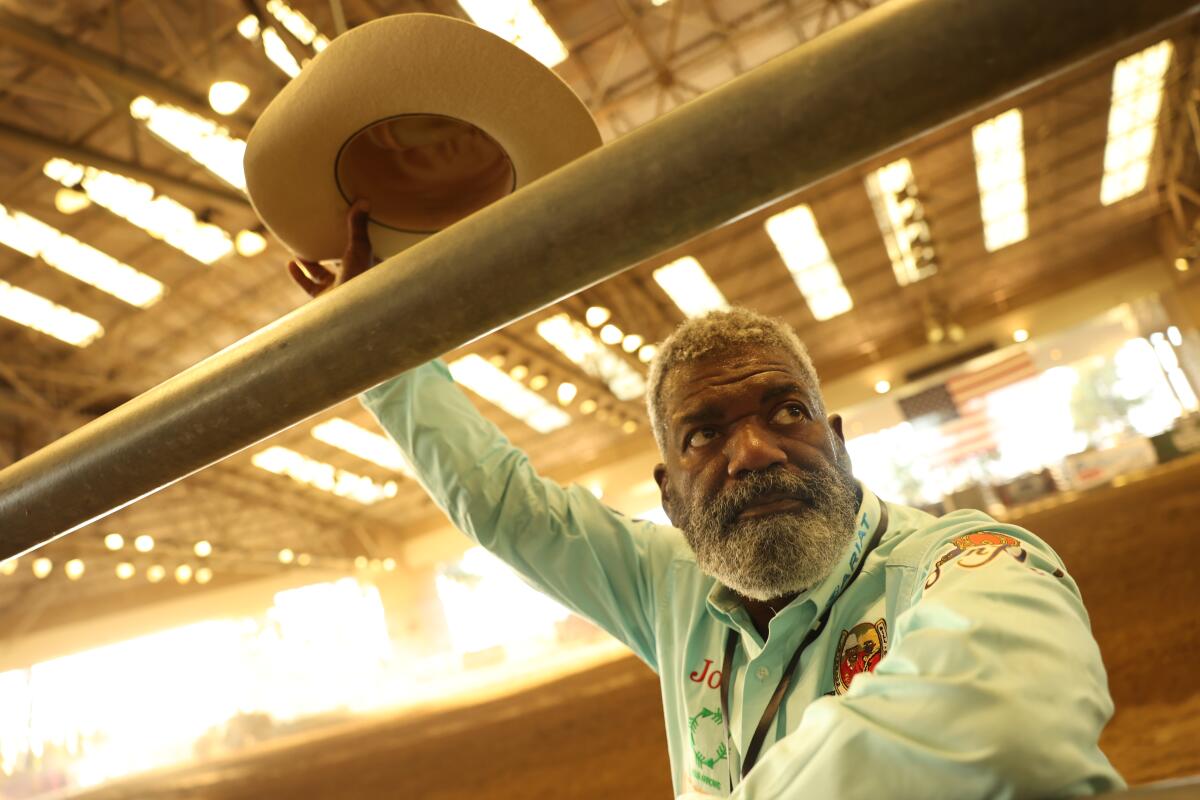
4
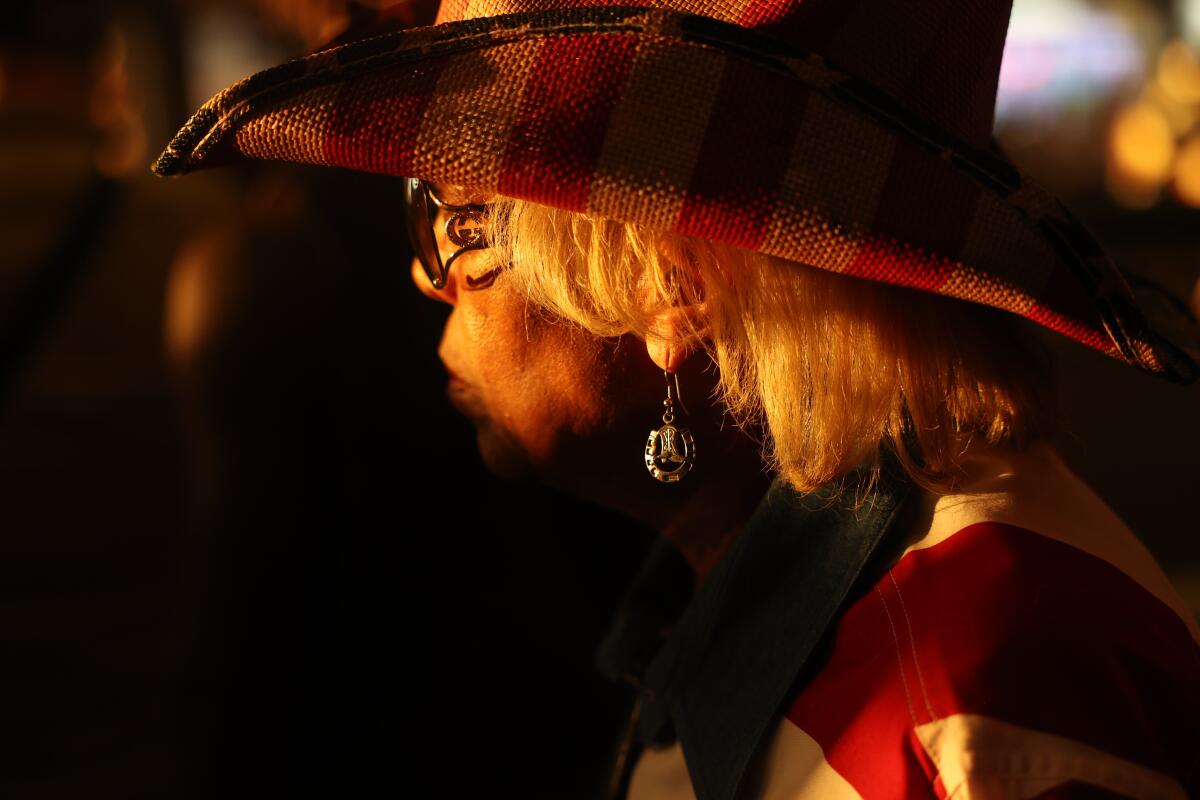
1. A man laughs at the Bill Pickett Rodeo on July 20, 2024, in the City of Industry. (Michael Blackshire/Los Angeles Times) 2. Daniel Montgomery, 10, smiles as his father, Daunte, fixes his hat. (Michael Blackshire/Los Angeles Times) 3. Singer Howard Johnson waves his hat before the rodeo begins. (Michael Blackshire/Los Angeles Times) 4. Vanessa Bailey walks to her seat. (Michael Blackshire/Los Angeles Times)
There is growing tension over a proposed ban on rodeos in Los Angeles, spearheaded by City Councilman Bob Blumenfield.
Valeria Howard, executive director of the Bill Pickett Invitational Rodeo, opposes the ban.
“If rodeo is banned in Los Angeles, it is only a matter of time before other California cities enforce the ban. The ban would eliminate an important cultural event for black unity.”
Matthew Marshall, a cowboy enthusiast from Long Beach, is also against the ban. He knows how it would affect his community.
“I grew up loving the Western community. It's something that's ingrained in our community,” Marshall said.
“It’s not taking money away from the wealthy areas, it’s taking money away from the areas that are actually going to be hurt. I think when it comes to rodeo, a lot of families are of Texan and Southern descent, and they still have a love for horseback riding and rodeo.”
Marshall wants people to know that Rodeo Drive has its origins in a large rodeo that was held in the area and that the word “cowboy” is derived from black cattle workers. They were called “cowboys” and white cattle workers were called “cowhands,” he said.
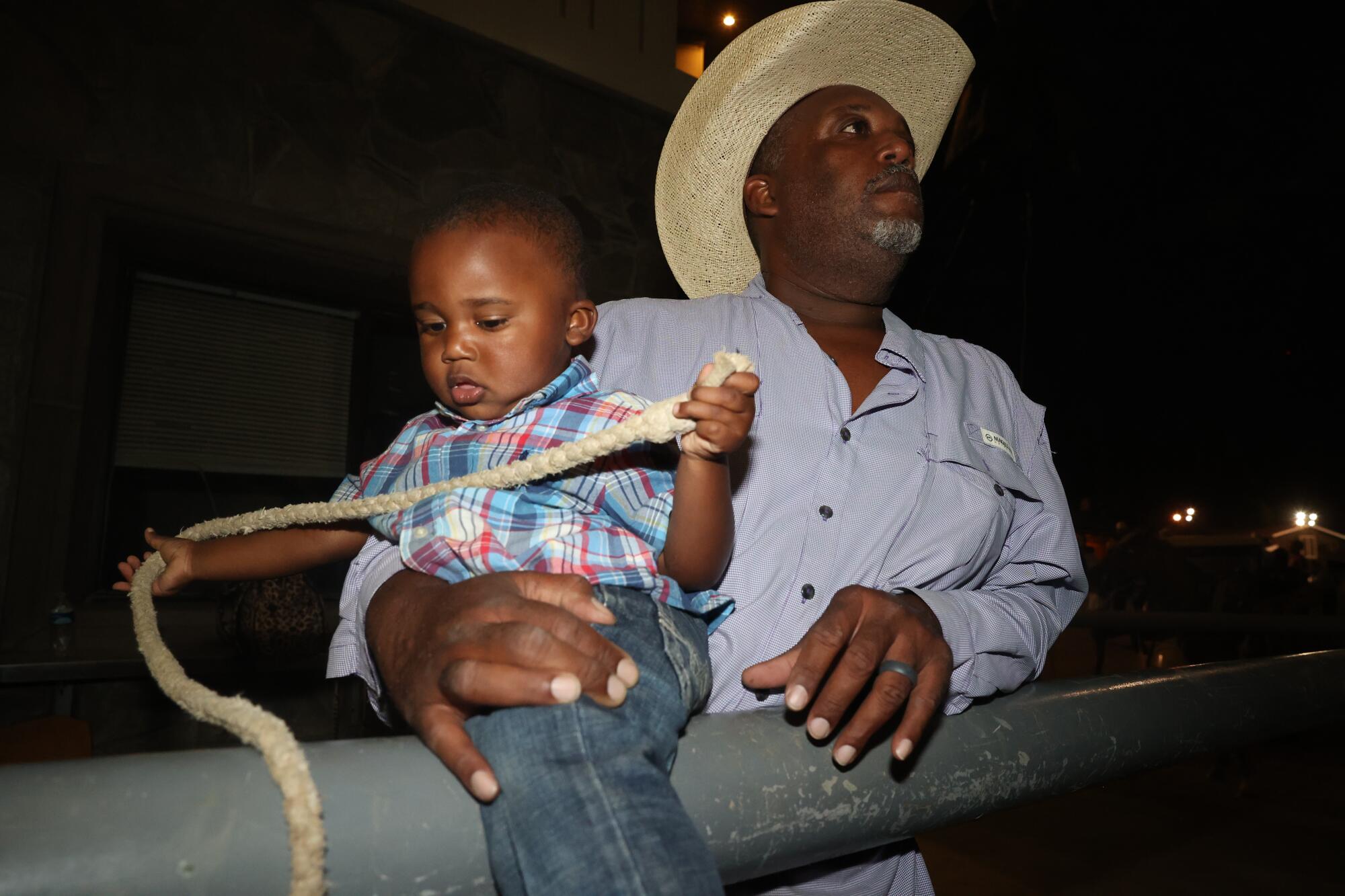
Charles Williams of Oklahoma holds his son Kaysen, 1, as the toddler plays with a rope during the Bill Pickett Invitational Rodeo on July 20, 2024, in the City of Industry.
(Michael Blackshire/Los Angeles Times)
Oklahoma native Charles Williams shows Los Angeles residents a different culture with his Southern hospitality and Southern accent, saying “Yessir” when greeting others and referring to people as “Bub.”
Williams is one of many who have made rodeo a career. That's the beauty of black rodeo. Black and Western pride tied together in a tight bond. As the great Charles Pride once said, “It's the country way of life.”
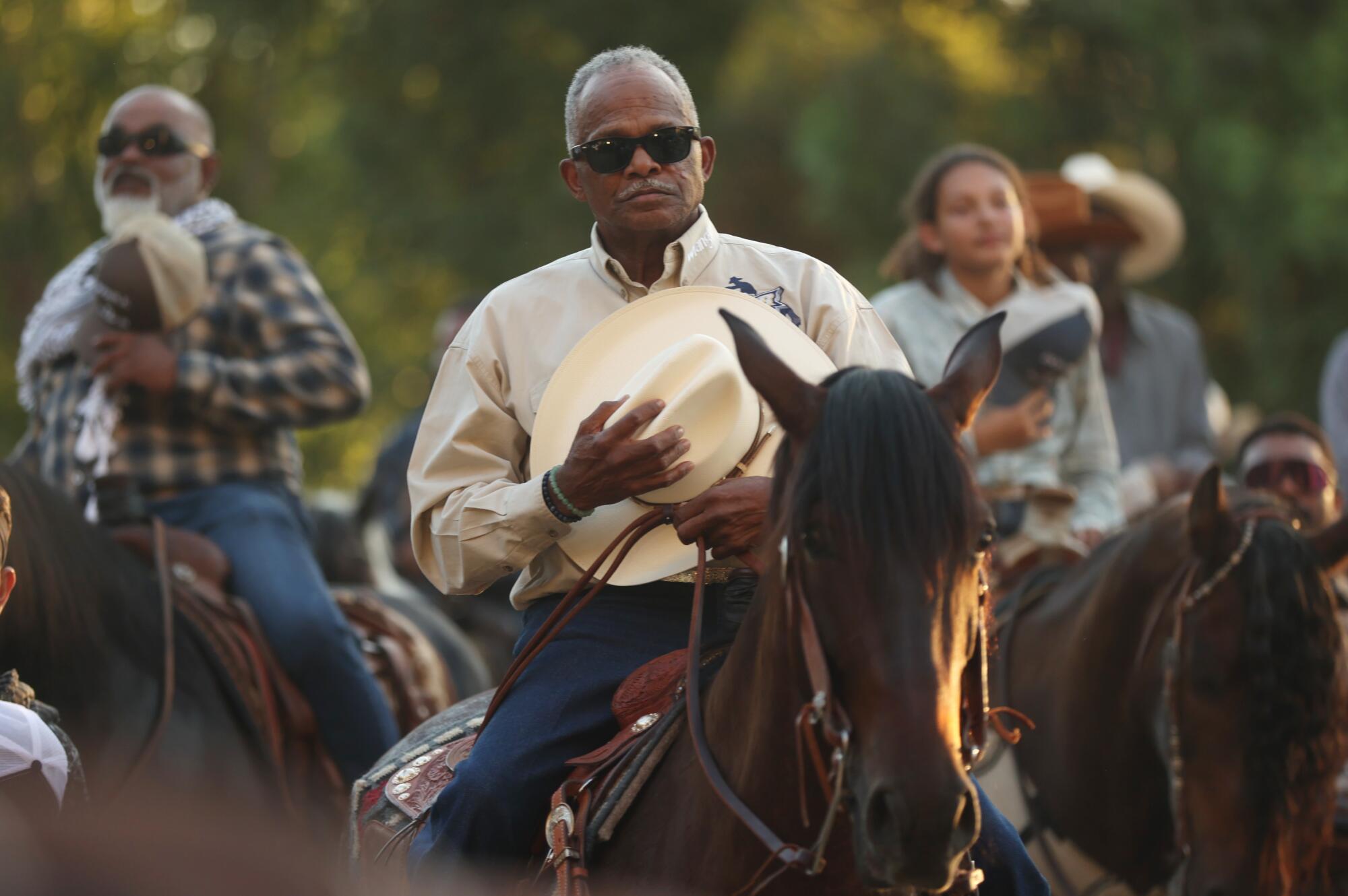
Cowboys place their hats over their hearts during the Pledge of Allegiance before the Bill Pickett Invitational Rodeo begins on July 20, 2024.
(Michael Blackshire/Los Angeles Times)
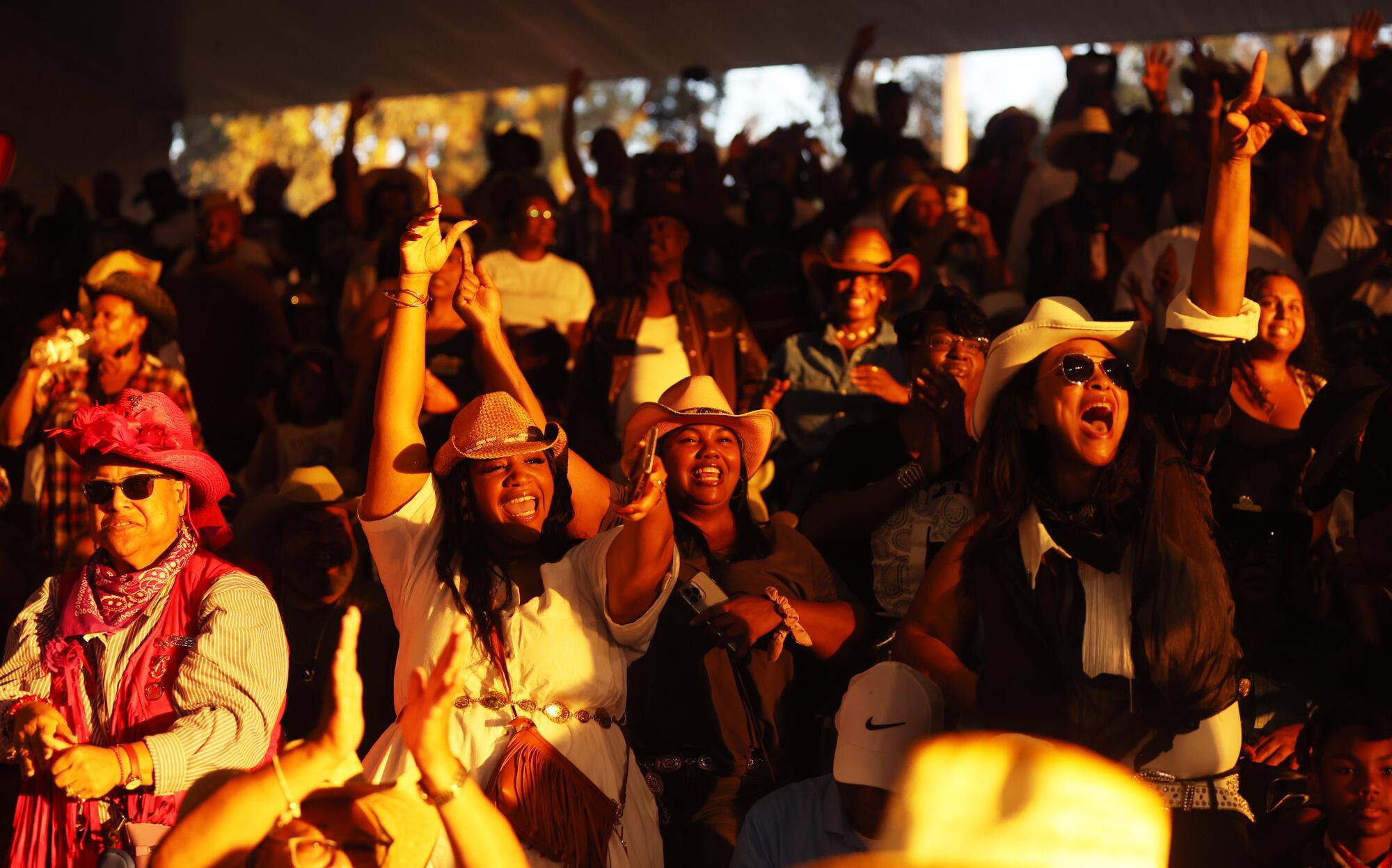
The crowd cheers as the Bill Pickett Rodeo begins on July 20, 2024.
(Michael Blackshire/Los Angeles Times)
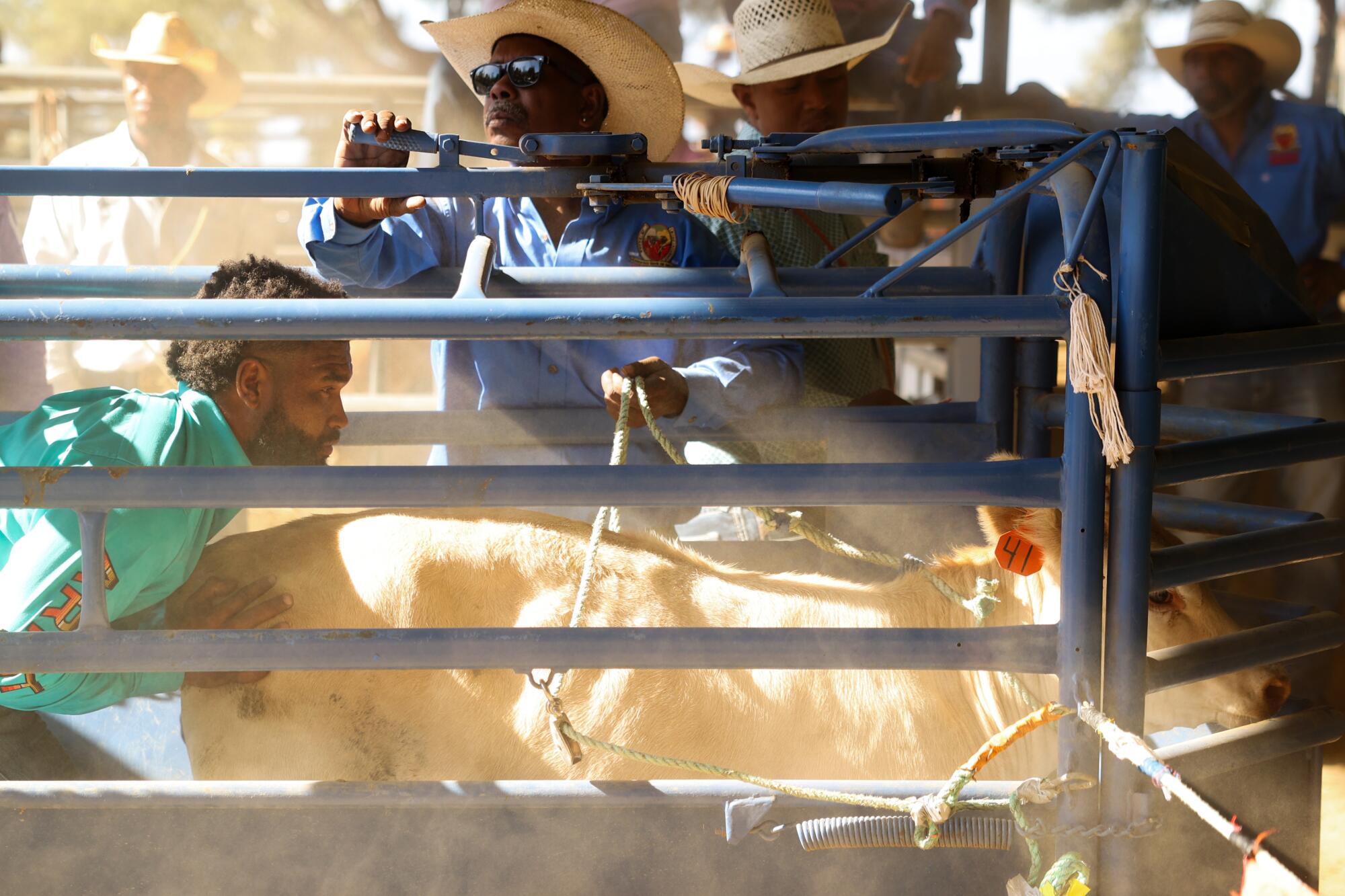
A cowboy holds a cow before releasing it for roping during the rodeo.
(Michael Blackshire/Los Angeles Times)
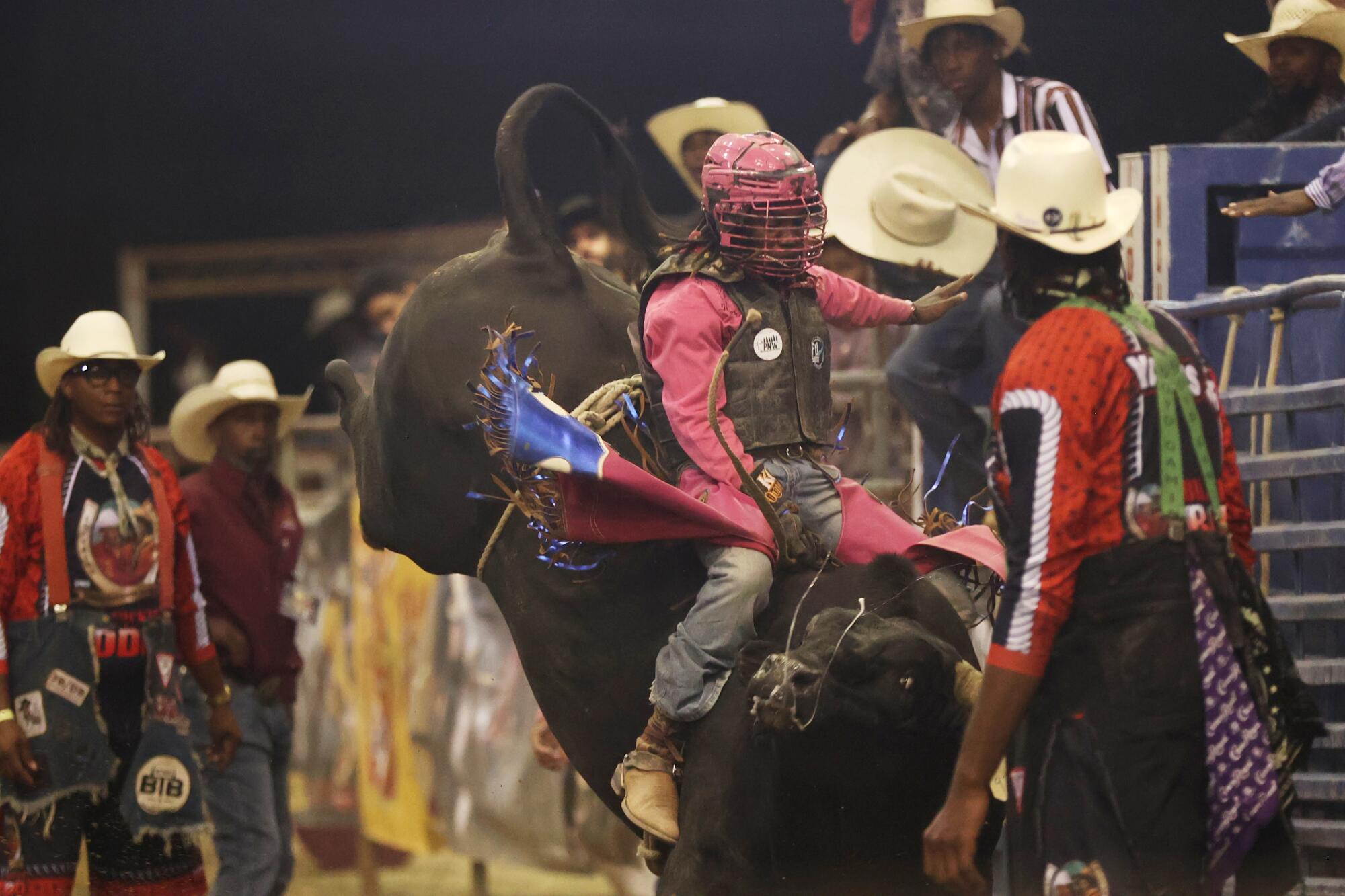
A cowboy rides a bull.
(Michael Blackshire/Los Angeles Times)
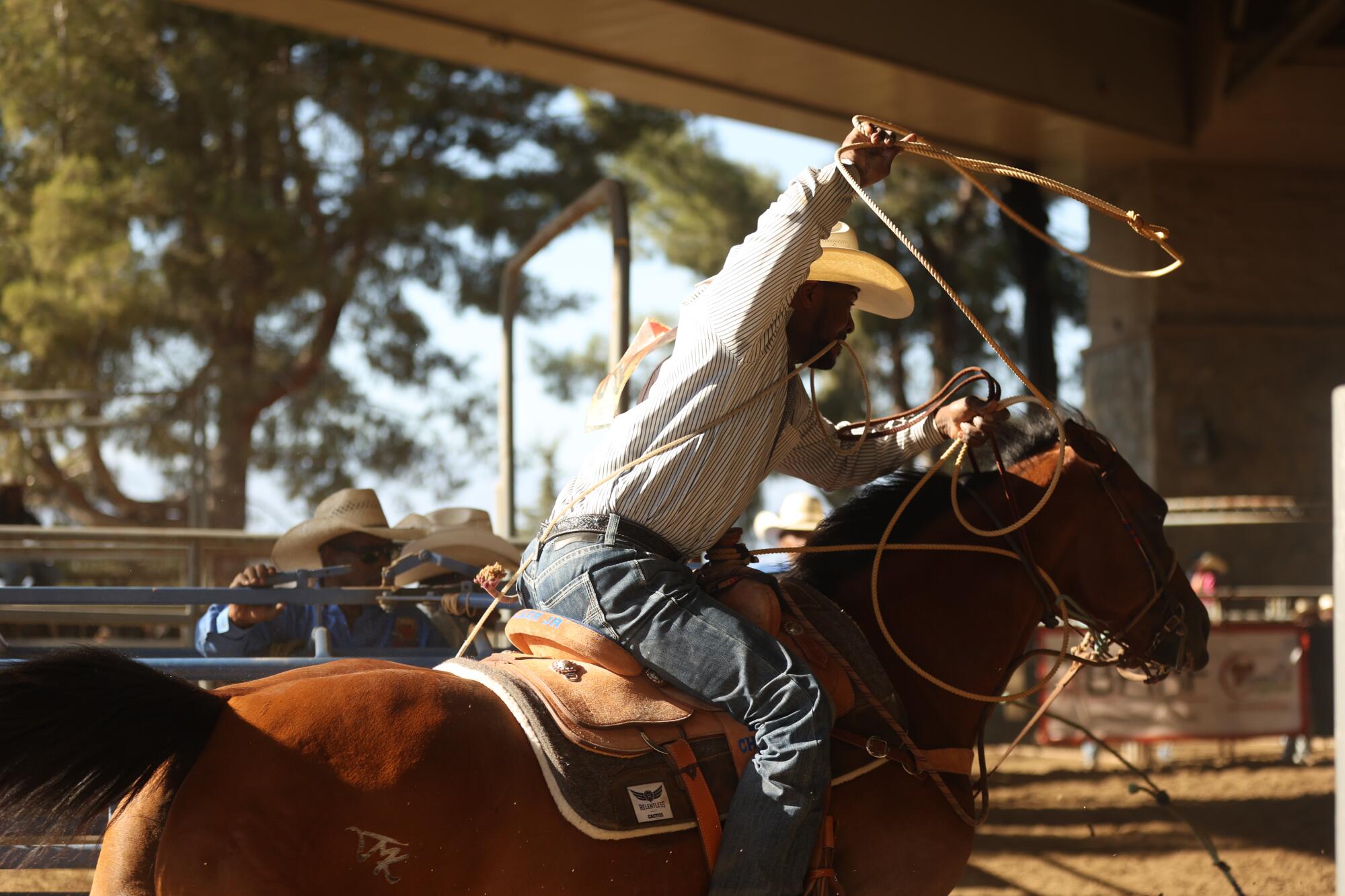
A cowboy swings his rope as he prepares to throw it at a cow's neck.
(Michael Blackshire/Los Angeles Times)
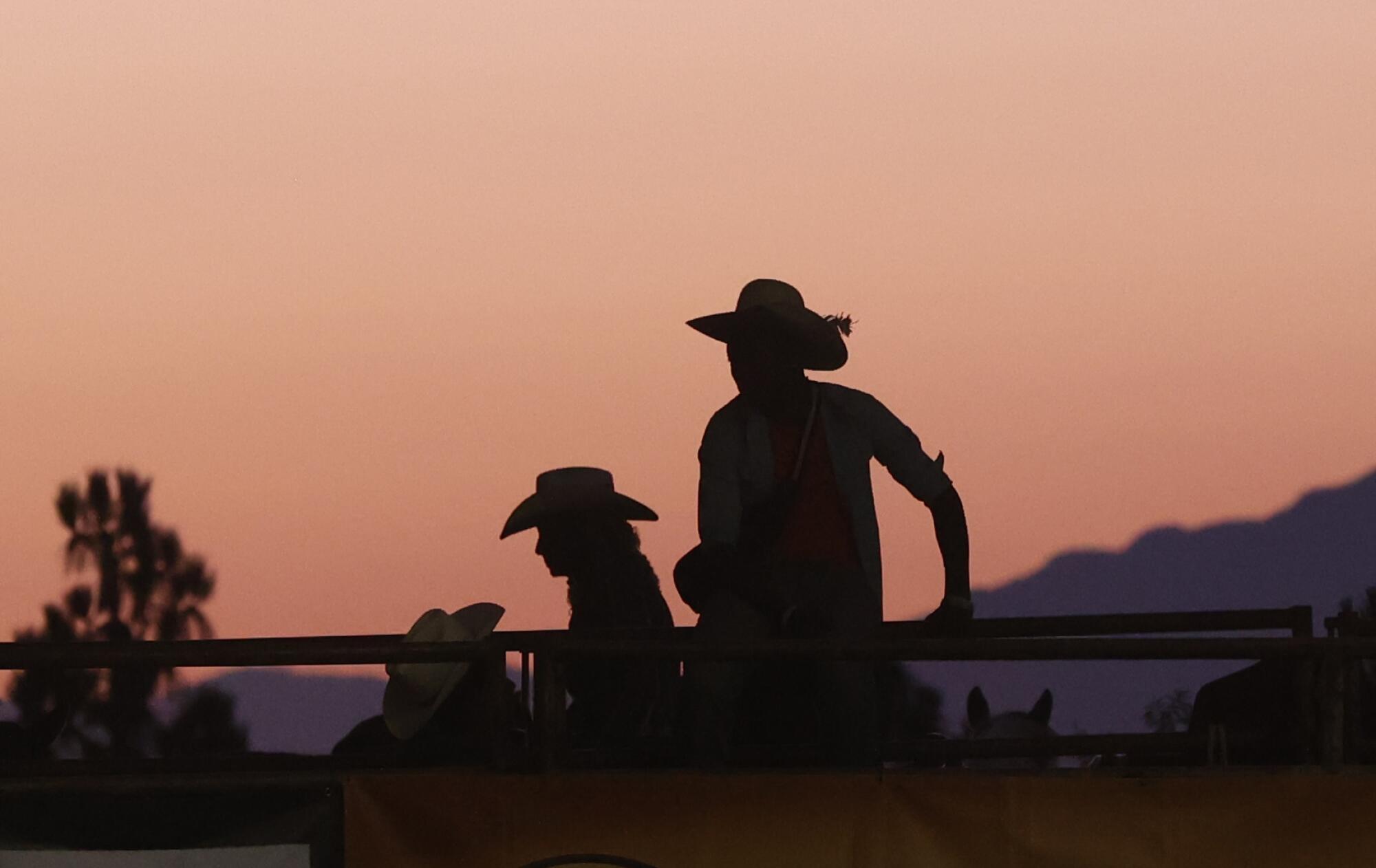
The cowboys wait their turn to act.
(Michael Blackshire/Los Angeles Times)

